Putin Focused on Consolidating Ukraine Gains: U.S. Intelligence Chief | My Opinion - #OPINION: Putin #Putin: In this and the previously tweeted today photo he appears to signal that he has something in the store, under the counter, for those responsible for the drone attack on the Kremlin, as he will investigate and determine it. To whom it may concern: Be extra prepared. But we do not know what it might be. | Michael Novakhov's favorite articles - 6:29 AM 5/5/2023
Michael Novakhov's favorite articles - 6:29 AM 5/5/2023
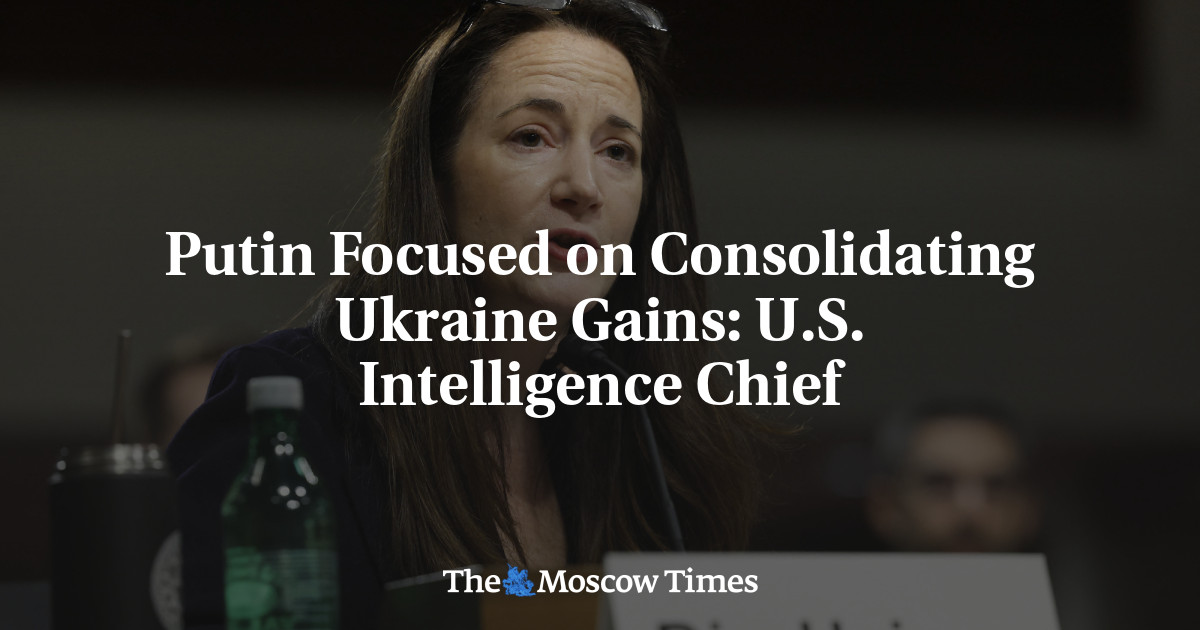
Russian forces in Ukraine are so degraded they cannot mount any significant offensive moves and are focused for now on consolidating control of occupied territory, the U.S. intelligence chief said Thursday.
As Ukraine prepares for its own offensive in the coming months, Russian President Vladimir Putin still likely aims to prolong the conflict until Western support for Kyiv wanes, said Director of National Intelligence Avril Haines.
"Putin probably has scaled back his immediate ambitions to consolidating control of the occupied territory in eastern and southern Ukraine, and ensuring that Ukraine will never become a NATO ally," Haines told a hearing of the Senate Armed Services Committee.
But she said that whatever the outcome of Ukraine's offensive — whether it recaptures much of the occupied south and east or the current stalemate remains — Putin is unlikely to offer any concessions to advance peace talks.
"The challenge is that even as Putin may be scaling back his near-term ambitions, the prospect for Russian concessions to advance negotiations this year will be low unless domestic political vulnerabilities alter his thinking," Haines said.
While Western allies bolster Kyiv with arms, ammunition, and training in advance of its planned offensive, Haines noted that Russian forces have "significant" shortfalls in ammunition and personnel.
"Even if Ukraine's counter-offensive is not fully successful, the Russians are unlikely to be able to mount a significant offensive operation this year," Haines said.
To sustain even a modest offensive campaign, Putin would have to order a mandatory mobilization of army recruits as well as secure significant ammunition supplies from other countries, beyond what it gets from Iran, she said.
Still, she added: "We continue to assess that Putin most likely calculates that time works in his favor and that prolonging the war may be his best remaining pathway to eventually securing Russia's strategic interests in Ukraine."
Haines said Moscow's losses are such that its military requires "years of rebuilding."
With a weakened conventional military force, Moscow will become more reliant on nuclear, cyber, and space capabilities for deterrence, she said.
Haines added it was "very unlikely" that Moscow would use nuclear weapons in the conflict.
Putin #Putin: In this and the previously tweeted today photo he appears to signal that he has something in the store, under the counter, for those responsible for the drone attack on the Kremlin, as he will investigate and determine it. To whom it may concern: Be extra prepared. But we do not know what it might be. Из альбома к материалу Встреча с Министром экономического развития Максимом Решетниковым 4 мая 2023 года Москва, Кремль
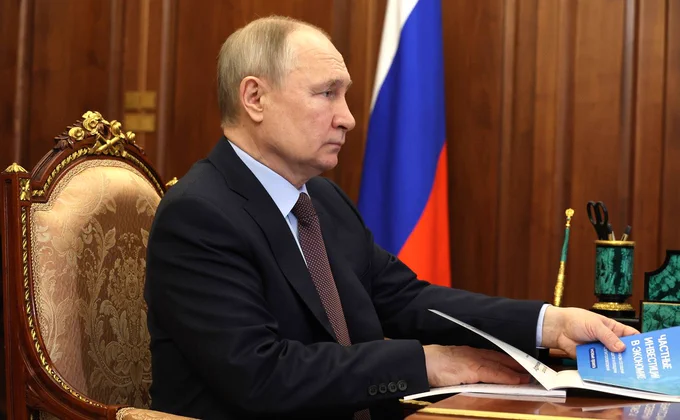
Putin #Putin Из альбома к материалу Встреча с губернатором Нижегородской области Глебом Никитиным 3 мая 2023 года Московская область, Ново-Огарёво
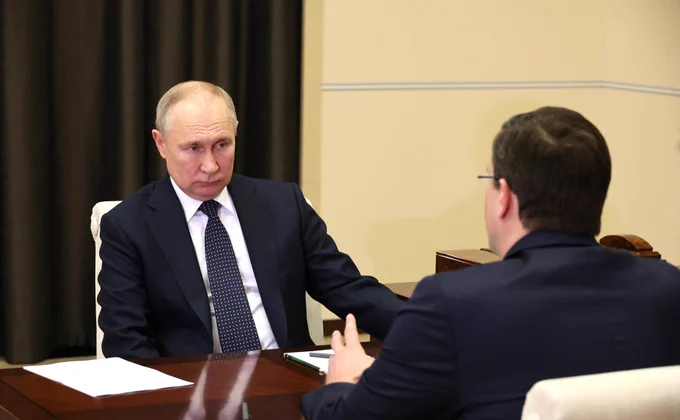
🔴 Rottura totale tra #Putin e #Wagner: il gruppo paramilitare lascerà #Bakhmut, la città ucraina che la Russia cerca da mesi di conquistare, entro il 10 maggio. editorialedomani.it/politica…
Two main theories have emerged about the drone strike on the Kremlin carried out in the early hours of Wednesday. themoscowtimes.com/2023/05/0…
Mass shootings like the two in Serbia this week that left more than a dozen people dead are far less common outside the U.S. nyti.ms/412MFtb
Подразделения ЧВК "Вагнер" 10 мая передадут позиции в Артемовске (украинское название — Бахмут) войскам Минобороны РФ, чтобы сохранить личный состав от потерь и "зализать раны" в тыловых лагерях, заявил Евгений Пригожин: bit.ly/3LVchEb
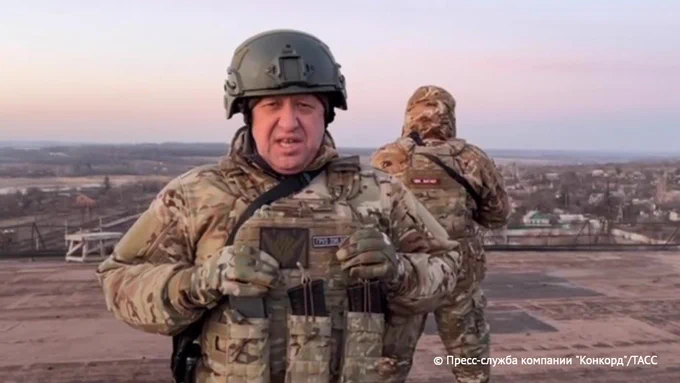
Addressing President #Putin directly, Yevgeny #Prigozhin said the move was necessary due to a lack of #ammunition and said his fighters were "licking their wounds." kyivpost.com/post/16644
On this day in 1821, Napoleon Bonaparte, 51, dies in exile on the island of St. Helena. "France... Armée... Tête d'armée... Joséphine," he supposedly calls out in his final moments.
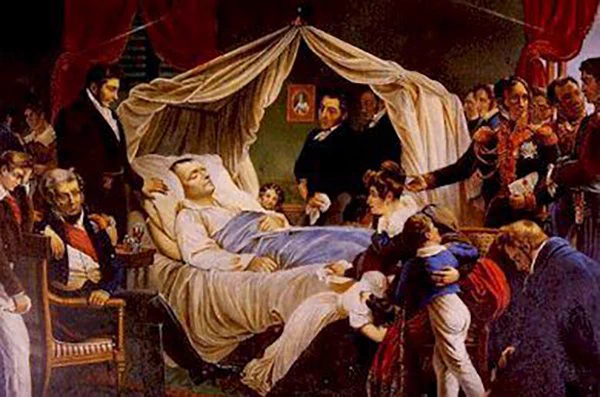
"We will respond with concrete actions," the Russian foreign minister warned. themoscowtimes.com/2023/05/0…
На Ильском нефтеперерабатывающем заводе в Краснодарском крае во второй раз за последние два дня произошел взрыв и начался пожар. По разным данным, причиною могли стать "самовоспламенение предыдущего очага пожара после атаки дрона", новая атака дрона или диверсия. Фото 4 мая
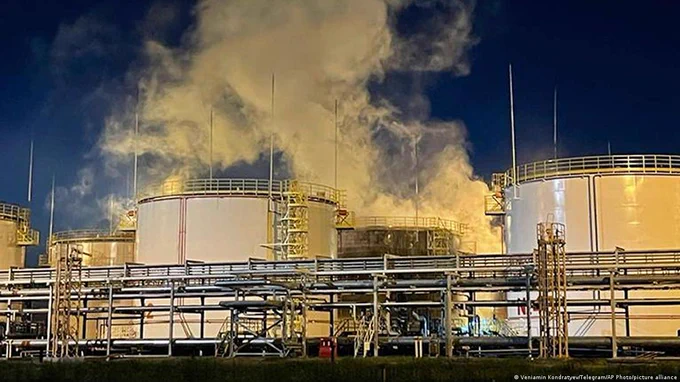
Surrounded by corpses, Wagner's Prigozhin blasts Russian defence minister in expletive-laden video reuters.com/world/europe/sur…
Пригожин пригрозил вывести боевиков ЧВК "Вагнер" из Бахмута в тыл, так как "при отсутствии боеприпасов они обречены на бессмысленную гибель". Позиции будут переданы подразделениям Минобороны РФ 10 мая из-за "снарядного голода". Ранее сообщалось о конфликтах между ЧВК и Минобороны
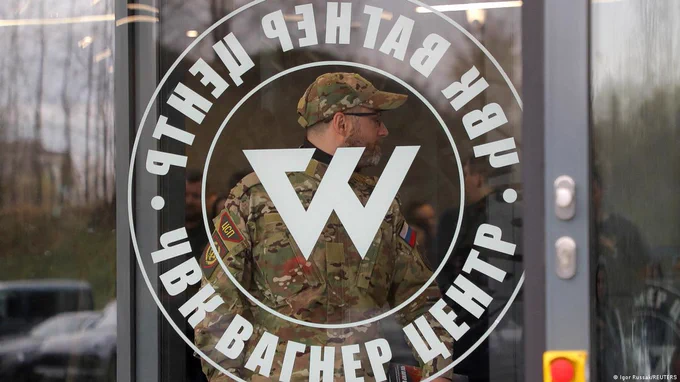
#WagnerGroup #Russia Russia #Ukraine Ukraine Yevgeny Prigozhin: Wagner Group boss says he will pull troops out of Bakhmut shar.es/af9SL4
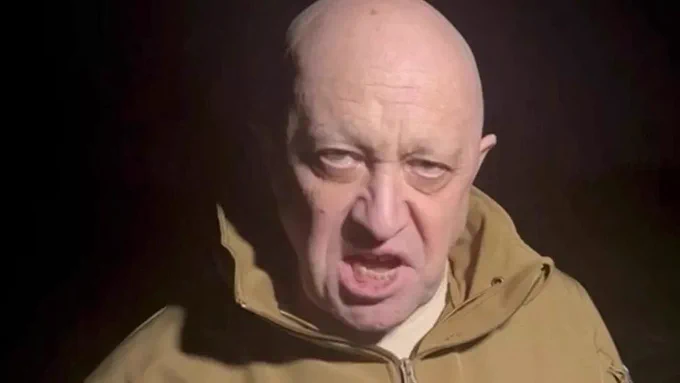
Leader of Russia's Wagner Group threatens to withdraw his troops from Ukrainian city of Bakhmut by Wednesday in row over ammunition supplies bbc.in/419xzCr
Ukraine’s counteroffensive: Can it meet expectations? | To the Point youtu.be/cDUn7liq5Cc via @YouTube
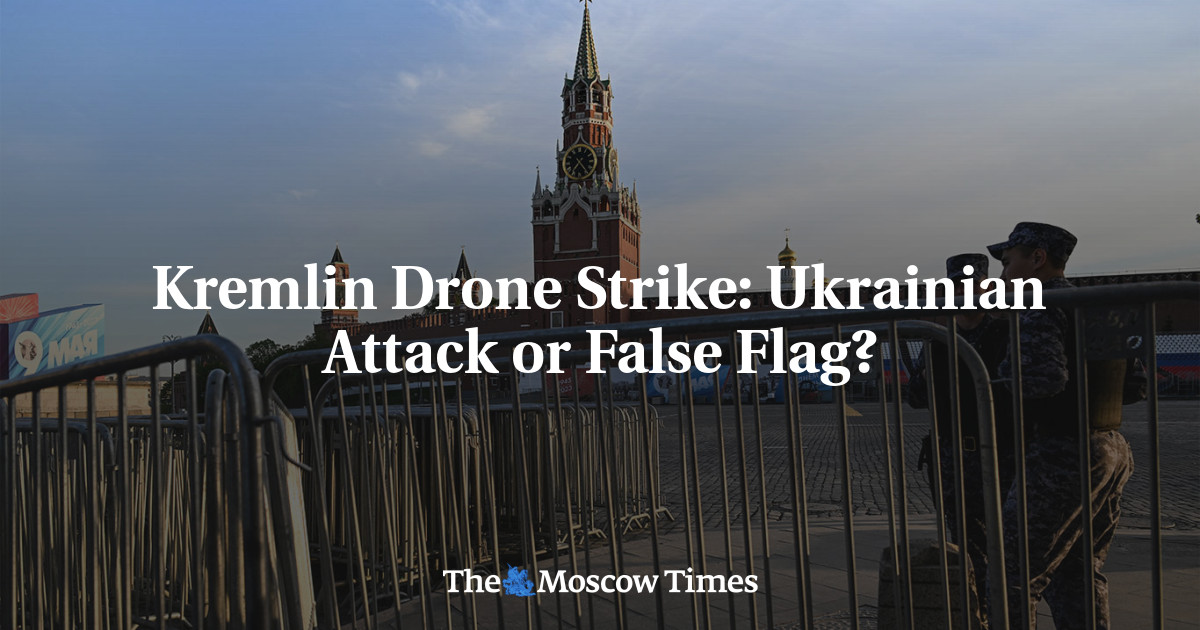
Moscow claimed Wednesday that Ukraine attempted to assassinate Russian President Vladimir Putin in an early morning drone attack on the Kremlin.
Dramatic video published online showed at least one drone bursting into flames as it flew into a flagpole on top of the Kremlin’s Senate House, where Putin’s office and apartment are located. Photos taken later during daylight showed what appeared to be burn marks on the roof.
If the drone strike on the Kremlin was ordered by Kyiv, it would not only demonstrate Ukraine’s increased military capabilities but also the Russian government’s failure to keep one of the most heavily protected locations in the country out of harm’s way.
The incident comes as Kyiv prepares to launch its long-anticipated counteroffensive against Russian forces in eastern Ukraine. It also follows strikes on Russian oil refineries, trains and air bases in the lead-up to May 9 when Russia marks the Soviet victory in World War II. This year, celebrations have been canceled in over 20 cities due to security concerns.
Much about Wednesday’s drone strike on the Kremlin remains unclear, but here is what we know so far:
What have Russia and Ukraine said?
Putin’s spokesman Dmitry Peskov immediately accused Ukraine of orchestrating “a planned terrorist act and an attempt on the life of the president.”
However, in the same statement, Peskov admitted that Putin had not been inside the Kremlin at the time of the strike, but, instead, was staying at his residence in Novo-Ogaryovo, some 10 kilometers west of the Russian capital.
Kyiv vehemently denied any involvement in the alleged attack, however.
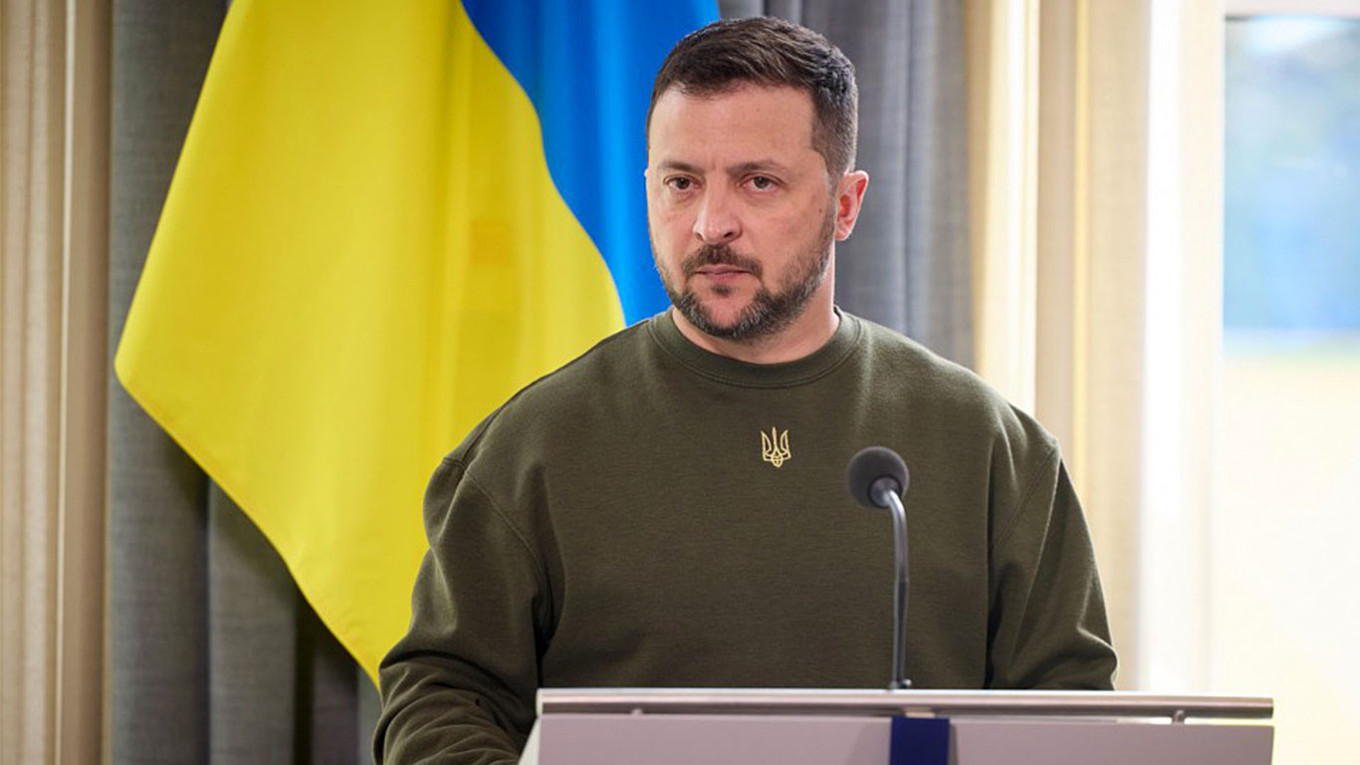 Ukrainian President Volodymyr Zelensky. president.gov.ua
Ukrainian President Volodymyr Zelensky. president.gov.ua"We didn't attack Putin," Ukrainian President Volodymyr Zelensky said Wednesday. “We fight on our territory, we are defending our villages and cities.”
Moscow ramped up its accusations Thursday by claiming the U.S. was behind the strike.
“We know that often it isn’t even Kyiv that determines the targets, but Washington,” Peskov told journalists. “It’s very important that Washington understands that we know this and understands how dangerous such direct involvement in the conflict is.”
U.S. officials have denied Moscow’s allegations, with White House National Security Council spokesperson John Kirby on Thursday stating that Washington “had nothing to do with” the drone strike. "Peskov is just lying there, pure and simple,” Kirby said.
What explanations are circulating for the strike?
Several competing explanations for the strike have emerged in the subsequent 24 hours, each with its own set of implications and potential consequences.
The two most popular explanations among the independent expert community appear to be that it was an attack by Ukrainian forces, or by Russian partisans.
“I think the political leadership of Ukraine is trying as much as it can to destabilize the domestic political situation in Russia,” political scientist Kirill Shamiev said in an interview with independent media outlet Meduza.
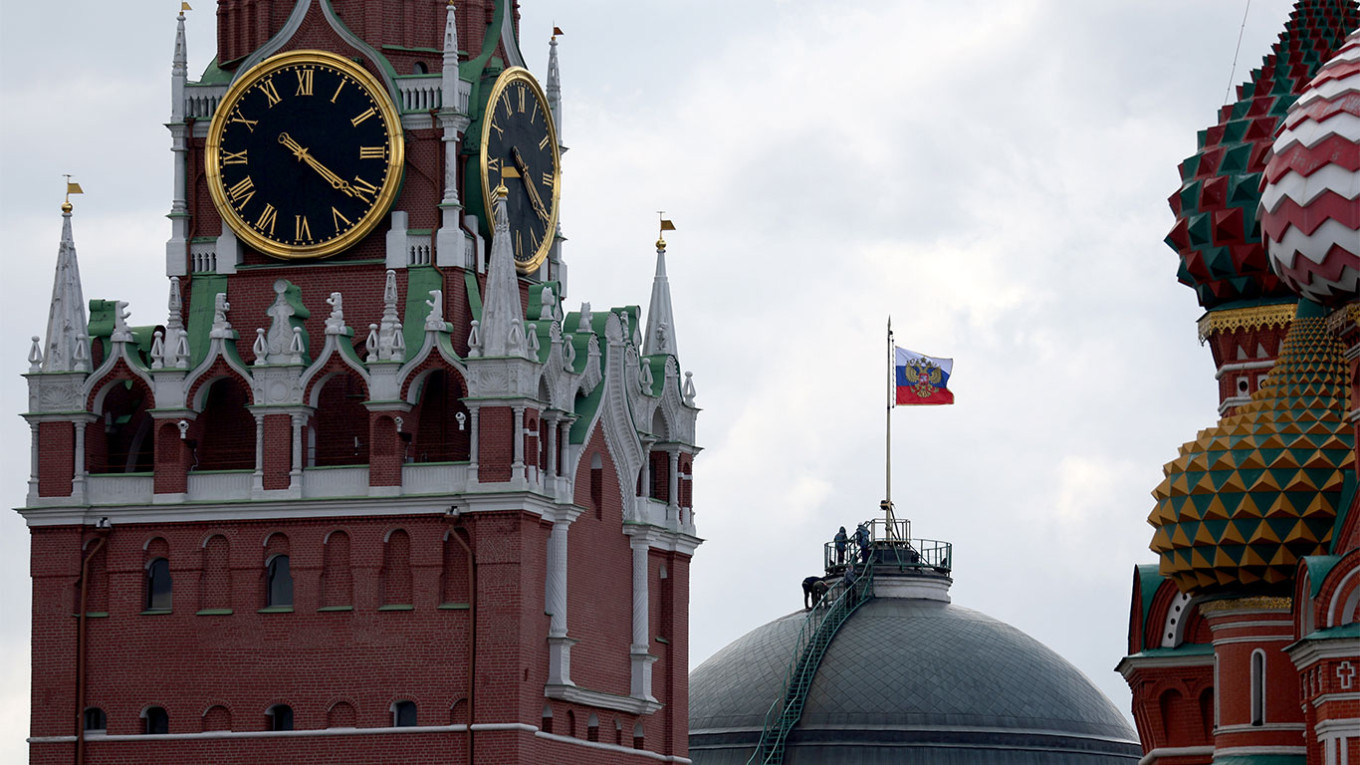 The Russian Presidential banner flies on top of the dome of the Senate Palace (C back) in the Moscow Kremlin. Sergei Bobylev / TASS
The Russian Presidential banner flies on top of the dome of the Senate Palace (C back) in the Moscow Kremlin. Sergei Bobylev / TASSAccording to Shamiev, the drone strike is a powerful symbolic blow against Putin and creates the impression he is not in control of the security situation in the country.
Russian security analyst Mark Galeotti also said the most likely scenario was that the attack was carried out by the Kremlin’s opponents.
“What the Ukrainians would have wanted to show is that Moscow is not safe, and to do so shortly before 9 May,” Galeotti wrote in an article for British magazine The Spectator on Wednesday, adding that the incident could lead to a purge of top Russian military commanders, including Defense Minister Sergei Shoigu.
Oleg Ignatov, a senior analyst at International Crisis Group, agreed that the strikes were aimed at showing that Russians are just as vulnerable as Ukrainians to attacks and that "nobody, not even in the Kremlin, is safe."
"I'm sure that as long as the war goes on, if Ukraine has the ability to carry out these strikes, they will try to expand them, showing the Russians that the war is near ... they want to push it as close to Moscow as possible," Ignatov told The Moscow Times.
Another explanation given for the attack has been that it was organized by Russia-based partisans who oppose their country’s invasion of Ukraine — although doubts have been cast on whether such a group would have the capability to breach the Kremlin’s defenses.
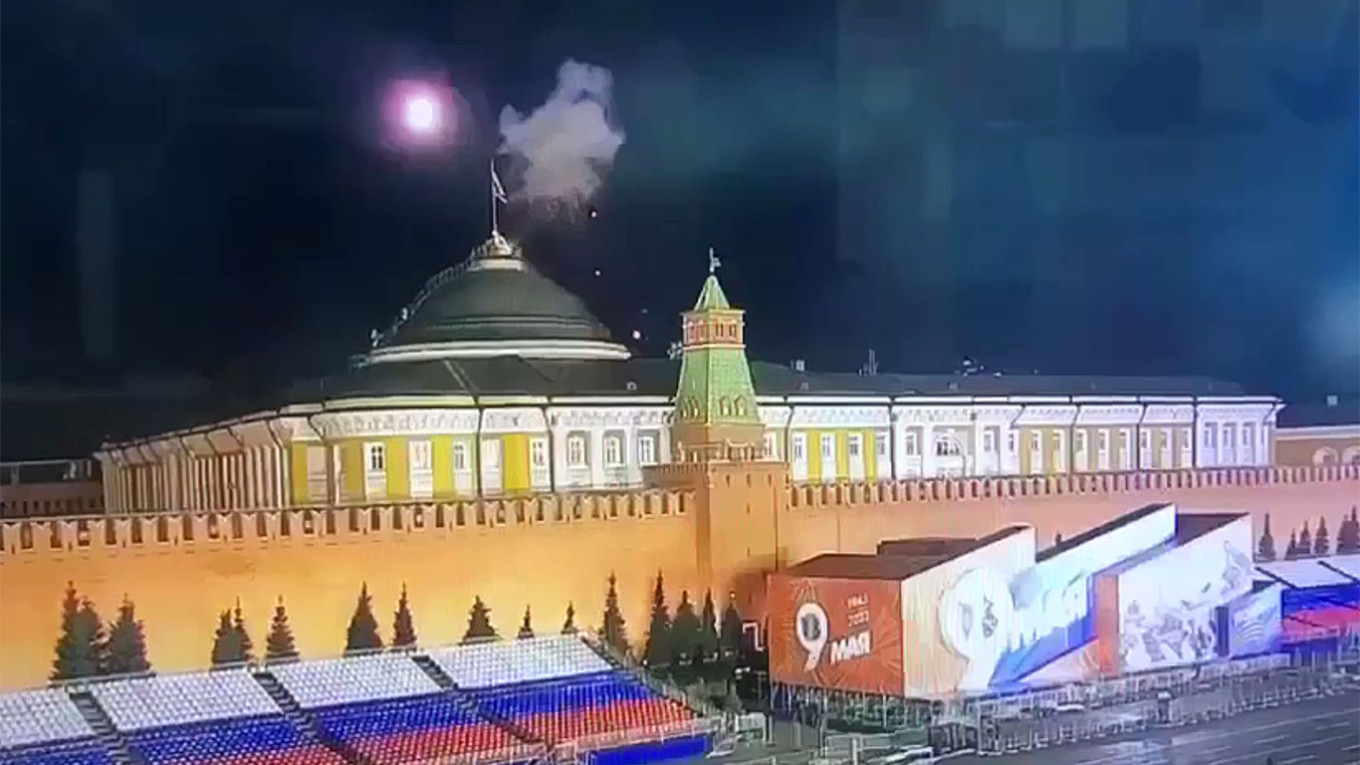 A drone attack on the Kremlin. Video grab
A drone attack on the Kremlin. Video grabOne prominent supporter of this claim is Ilya Ponomaryov, a Kremlin critic and former Russian State Duma deputy who currently lives abroad.
“What Putin is selling to the nation and especially to the elites is the feeling of invulnerability and security. And partisans are ruining both. They are actually saying the war is here and you guys, you personally, are not safe,” Ponomaryov told CNN on Thursday.
Could it have been a false flag operation?
Some have argued the incident was a Russian false flag operation — possibly to create a pretext for more aggressive rhetoric against the West, or to justify a further escalation in Ukraine.
U.S.-based think tank the Institute for the Study of War (ISW) argued the Kremlin’s “coherent and coordinated” response to the strike suggested that the incident was a false flag operation.
Some Ukrainian officials have also suggested the attack was the work of Russian security officers. Ukrainian presidential adviser Mikhaylo Podolyak alleged Wednesday that the attack had been "staged" by Moscow. "Such staged reports by Russia should be considered solely as an attempt to prepare ... for a large-scale terrorist attack on Ukraine," he wrote on Twitter.
However, there is significant evidence that the Kremlin has not sought to use the incident in a way that would align with the false flag theory.
In particular, few details about the incident have been broadcast on Russian state-run TV channels. During its Wednesday evening news broadcast, for example, state-owned Channel One devoted only four minutes of airtime to the strike and did not show footage of the incident.
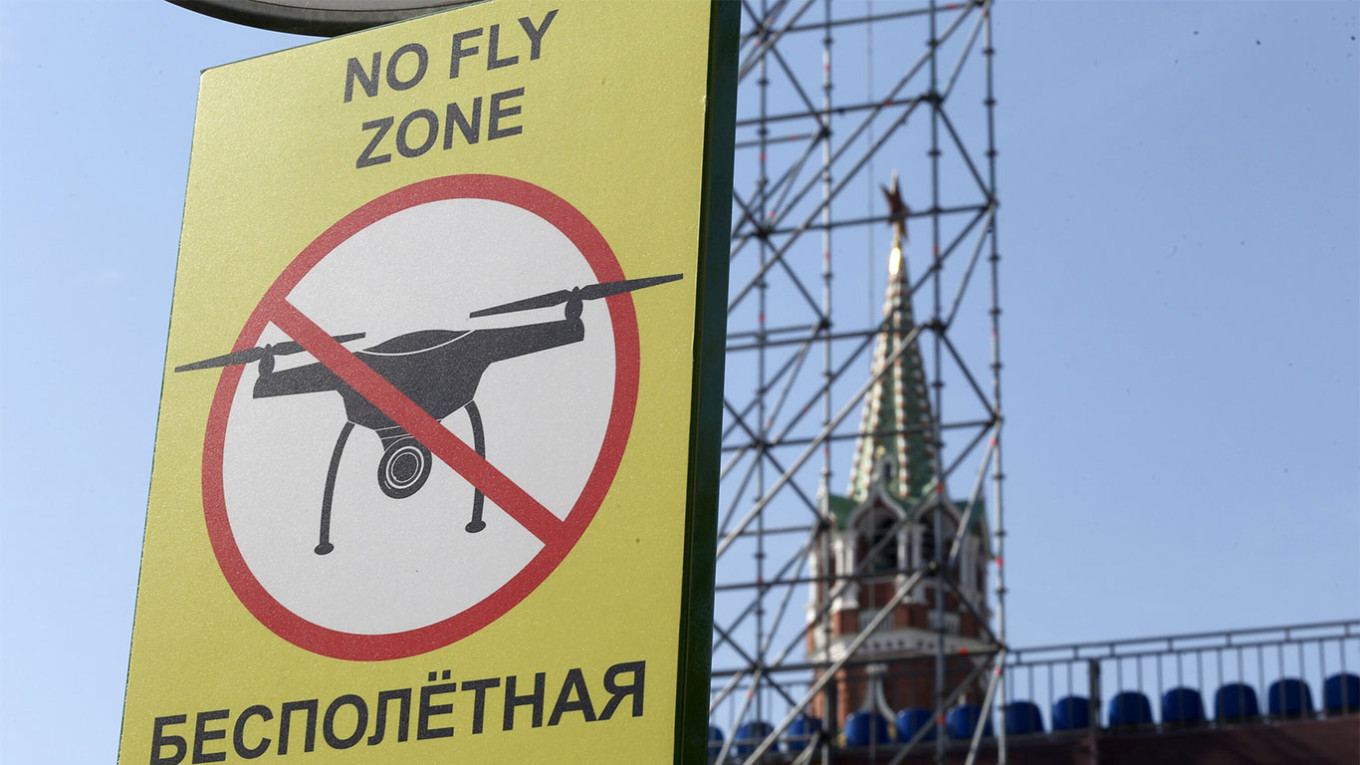 A 'No Drone Zone' sign is placed in front of the Red Square in Moscow. Andrei Nikerichev / Moskva News Agency
A 'No Drone Zone' sign is placed in front of the Red Square in Moscow. Andrei Nikerichev / Moskva News AgencyGaleotti ventured that the symbolic importance of the strike is so great that it’s deeply unlikely the Kremlin would have inflicted such a blow on itself.
“It is hard to believe that Putin is so desperate for political capital that he would be willing to pretend that his own air defense forces cannot stop drones from traveling the 450km-plus from the Ukrainian border and hitting the symbolic heart of the Russian state,” he wrote.
Speaking anonymously, an official with close ties to the Russian military told The Moscow Times that "the explosion of two Ukrainian drones over the Kremlin appears to be a major blow to Russian prestige. Someone should be punished for that."
Recalling the scandal that followed East German amateur pilot Matthias Rust being able to land a plane on Red Square in 1987 after flying undetected into Soviet airspace, the official said that despite the security breach being "less sensitive" in that case, "the defense minister and the air defense chief were fired."
"And now we have a war going on. Everybody's extremely tense, and then this happens!"
/cloudfront-us-east-2.images.arcpublishing.com/reuters/XDTZS4NMLNIFJGHGMFO3DQU4K4.jpg)
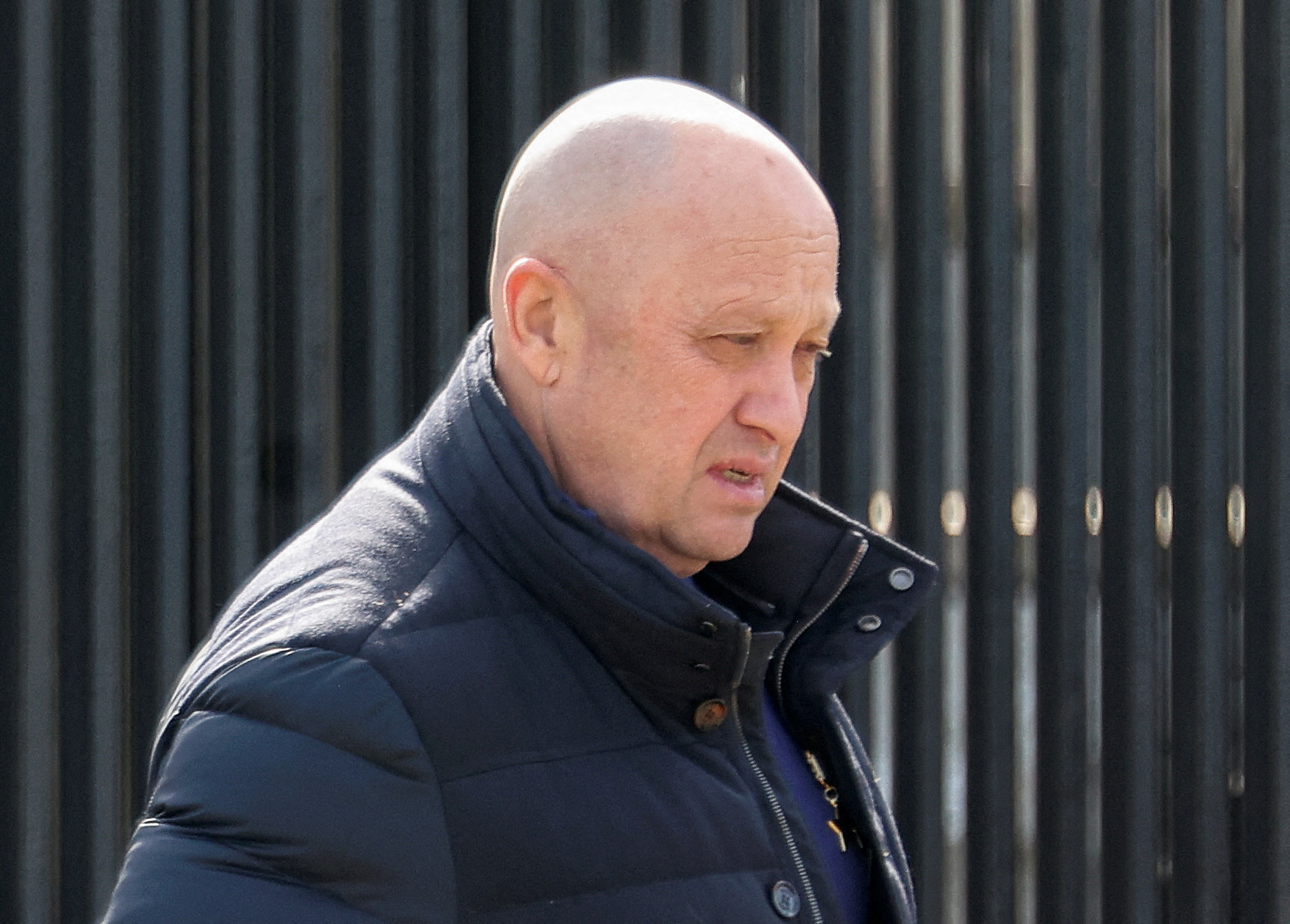
May 5 (Reuters) - Standing in a field of corpses, Russian mercenary boss Yevgeny Prigozhin on Friday published an expletive-ridden video personally blaming top defence chiefs for losses suffered by his Wagner Group fighters in Ukraine.
Prigozhin's tirade reignited and escalated a long-running feud with Defence Minister Sergei Shoigu and Chief of General Staff Valery Gerasimov, whom he has repeatedly accused of starving his forces of ammunition.
Prigozhin appeared next to dozens of bloodied corpses that he said were those of Wagner fighters. His expletives were bleeped out in the video published by his press service.
"We have a 70% shortage of ammunition. Shoigu! Gerasimov! Where is the ******* ammunition?" he yelled into the camera.
Those responsible would go to hell, Prigozhin shouted, before saying that Wagner's losses would be five times smaller if it was adequately supplied.
"These are Wagner lads who died today. The blood is still fresh," Prigozhin said, pointing to the corpses around him. "They came here as volunteers and they're dying so you can get fat in your offices."
Prigozhin, whose Wagner Group has spearheaded Russia's months-long assault on the east Ukrainian city of Bakhmut, began publicly feuding with defence chiefs last year, accusing them of incompetence, and of deliberately depriving Wagner of ammunition out of personal animosity towards him.
In recently weeks, Prigozhin had refrained from public attacks on Shoigu, even as he continued to suggest that deliberate ammunition shortages had exacerbated Wagner casualty figures.
Reporting by Reuters; Editing by Mark Trevelyan
Our Standards: The Thomson Reuters Trust Principles.
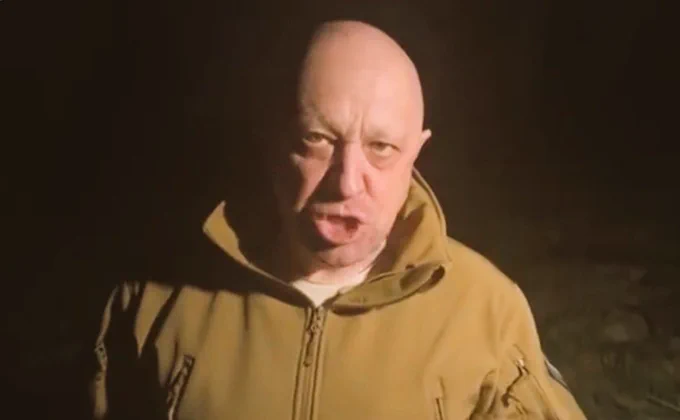



Comments
Post a Comment